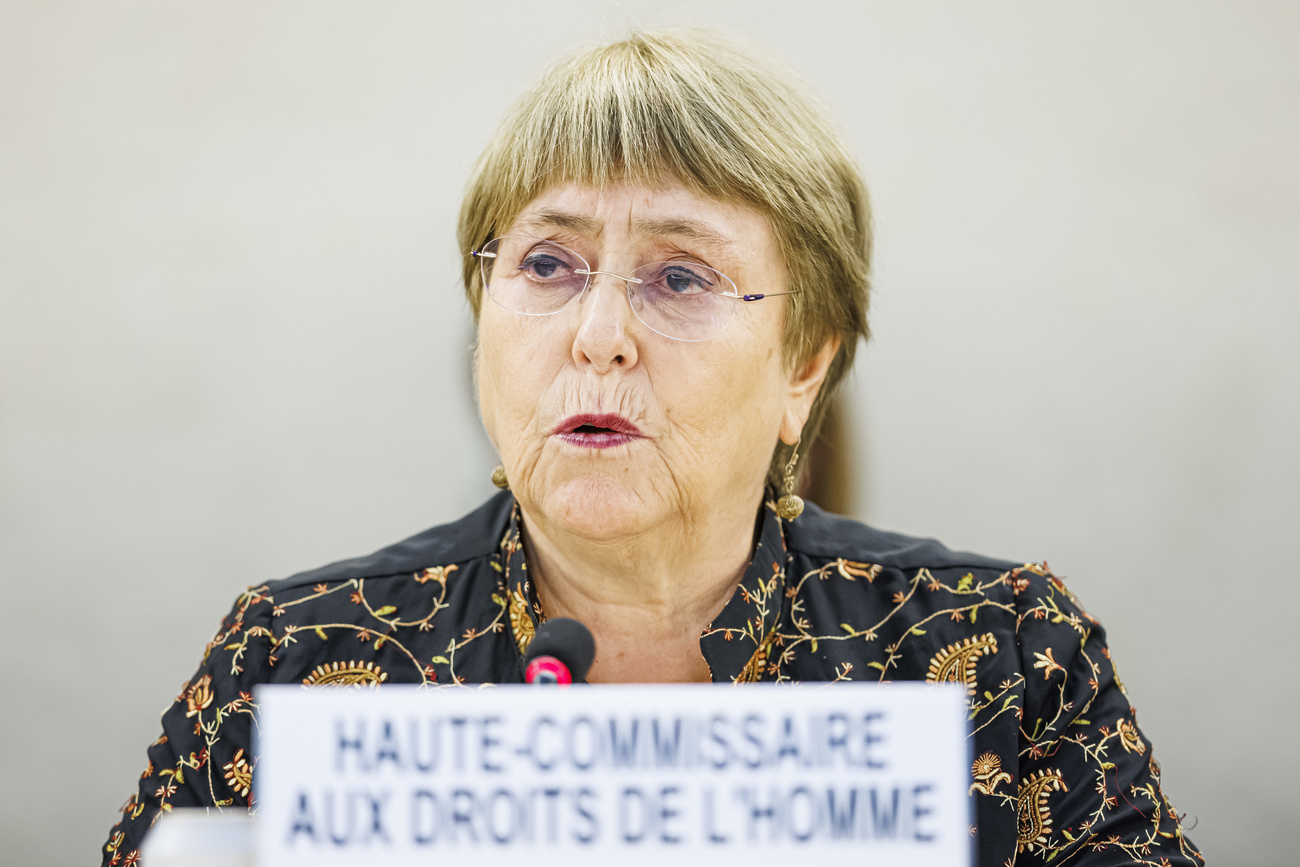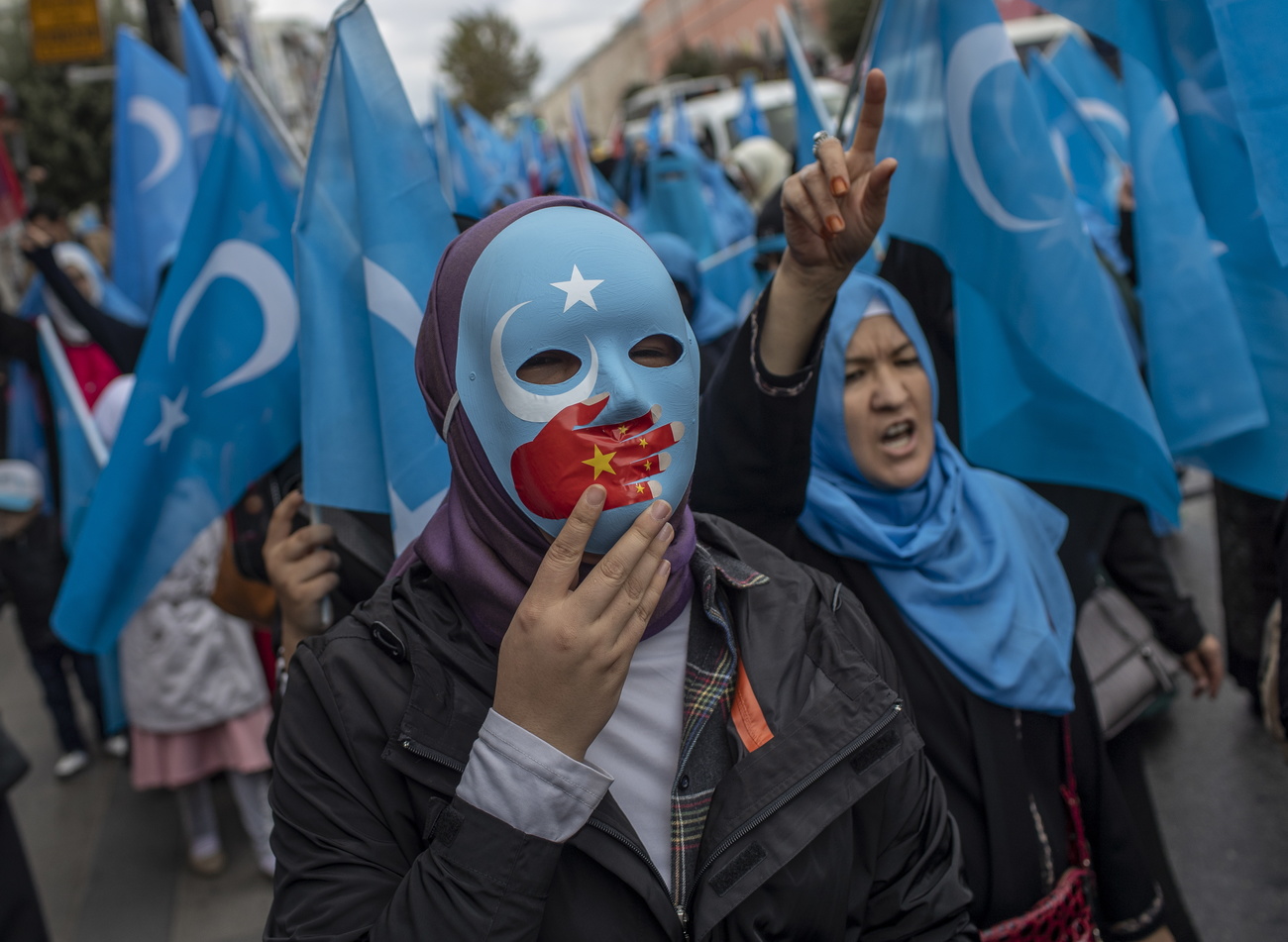
Switzerland raises UN Xinjiang report with the Chinese ambassador

The Swiss foreign ministry raised concerns following the publication of a long-awaited United Nations report on human rights abuses against the Uyghur minority in western China, the government said on Wednesday.
The report published by the UN Office of the High Commissioner for Human Rights (OHCHR) on August 31 said China’s “arbitrary and discriminatory detention” of Uyghurs and other Muslims in its Xinjiang region may constitute crimes against humanity. The Chinese government strongly rejected the findings.
Switzerland had already welcomed the release of the report last week, stating that it expected China to fully implement OHCHR’s recommendations.
On Wednesday, the Federal Department of Foreign Affairs told the Keystone-SDA news agency that Switzerland “regularly communicated its strong concerns for the rights of ethnic and religious minorities in Xinjiang”.
“Switzerland is convinced that the best way to preserve its interests and respect for fundamental rights is to conduct a critical and constructive dialogue with Beijing,” the foreign ministry added.
Neutral Switzerland has walked a diplomatic tightrope with Beijing, playing down prospects for embracing Western sanctions against China over its human rights record as Bern pursues a “special path” with a major trade partner.
In unveiling a new strategy on China last year, Bern announced few concrete policy changes and stressed the importance of bilateral ties. But it spoke more openly about its disapproval of China’s human rights record than it has tended to do in the past.
‘Serious violation’
The long-awaited UN Human Rights Office report on China’s actions in Xinjiang said that “serious human rights violations have been committed” in the western region in the context of the government’s application of “counter-terrorism and counter-‘extremism’ strategies”.
“The extent of arbitrary and discriminatory detention of members of Uyghur and other predominantly Muslim groups … may constitute international crimes, in particular crimes against humanity,” the U.N. office said. The report doesn’t mention “genocide” – a term which has been used by the United States.

More
UN Xinjiang report points to possible crimes against humanity
The OHCHR recommended the Chinese government take prompt steps to release all those detained in training centres, prisons or detention facilities.
The 48-page document was published a few minutes before UN human rights chief Michelle Bachelet ended her four-year term.
China vehemently rejected the allegations, issuing a 131-page response to the “so-called Xinjiang-related assessment”. It said the report was a farce planned by the United States, Western nations and anti-China forces based on false information and the assumption of guilt.
Rights groups have repeatedly accused Beijing of abuses against Uyghurs, a mainly Muslim ethnic minority that numbers around 10 million in the western region of Xinjiang, including the mass use of forced labour in internment camps. Several governments including the US have placed sanctions on China over the allegations of human rights abuse, which some labelled as genocide.
Chinese officials initially denied the existence of any detention camps, but later admitted the government had set up “vocational training centres” necessary to curb what it said was terrorism, separatism and religious radicalism in Xinjiang.
Correction: A previous version of this story stated that the Chinese ambassador was summoned over the UN report. On Thursday, the Federal Department of Foreign Affairs clarified that this was not the case and the discussion of the Xinjiang UN report with the Chinese ambassador was part of a regular working meeting on human rights.

More
Calls for accountability mount after UN China report

In compliance with the JTI standards
More: SWI swissinfo.ch certified by the Journalism Trust Initiative





























You can find an overview of ongoing debates with our journalists here . Please join us!
If you want to start a conversation about a topic raised in this article or want to report factual errors, email us at english@swissinfo.ch.